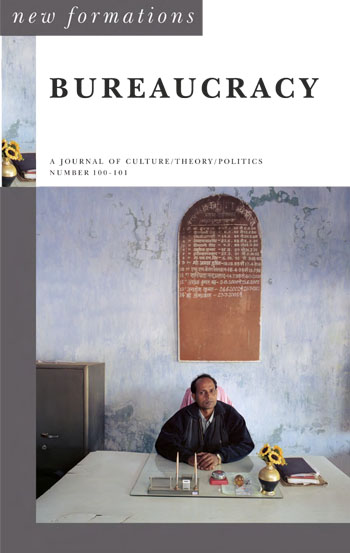
Hayek Shrugged: Why Bureaucracy Didn't Die Under Neoliberalism But Boomed Instead
New Formations - Print ISSN 0950-2378 - Online ISSN 1741-0789
Volume 2020 Number 100-101
Hayek Shrugged: Why Bureaucracy Didn't Die Under Neoliberalism But Boomed Instead
Peter Fleming
DOI: 10.3898/NEWF:100-101.08.2020
Abstract
Commentators have observed how neoliberal capitalism – contrary to the official narrative – frequently correlates with enthusiastic bureaucratisation, and perhaps has done so from its inception. Despite this acknowledgement, the precise mechanisms involved remain obscure. Focusing mainly on the writings of F.A Hayek, I argue that economic libertarianism is often contingent on a particular spirit of administration, justification for which can be found in the ‘fine print’ of Hayek among others. Furthermore, this counterintuitive symbiosis is realised through three institutional mechanisms, fuelling bureaucratisation in ostensibly pro-market environments. I discuss these mechanisms before exploring the implications they have for opposing the present economic regime.
SORRY - you are not registered as being permitted online access to the full text of this article
You have the following options:
- If you are viewing this via an institution or academic library you can ask that your institution takes out a Subscription to this journal.
- If you already have a Personal Subscription please login below
Forgotten your username / password? Click here to locate
- Purchase an annual Personal Subscription
PRINT + DIGITAL personal subscription (£45 / year)
DIGITAL personal subscription (£30 / year)
A Personal Subscription provides immediate access not only to the single article you are seeking, but also to all past and future articles in this journal up to the expiry of your annual (calendar year) subscription. - Purchase immediate access to this single article (UK£7.00) - Buy article Coming Soon
To cite this article
Peter Fleming (2020) Hayek Shrugged: Why Bureaucracy Didn't Die Under Neoliberalism But Boomed Instead, New Formations, 2020(100-101 ). https://doi.org/10.3898/NEWF:100-101.08.2020
